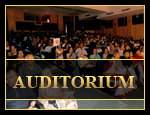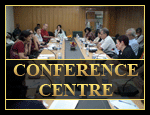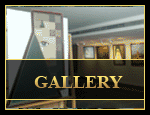|
|
|
The Indian Council for Cultural Relations (ICCR), founded in 1950 by Maulana Abul Kalam Azad, independent India�s first Education Minister, is the pre-eminent instrument of cultural diplomacy. Its mandate is to engage in a creative dialogue with other nations showcasing the diverse and rich cultural tradition of India while promoting dialogue with them through academic and cultural exchanges.
The Rabindranath Tagore Centre is the cultural flagship of ICCR in India and is on a prime location in Kolkata. It was originally designed by Charles Correa and later suitably revised and completed by architect Dulal Mukherjee.
The complex is on a plot of land measuring 3442.5 sq meters, and was allotted in 1990 to the Ministry of External Affairs by the Government of West Bengal. After being several years in the making the building was inaugurated on June 1, 2008 by Shri Pranab Mukherjee, Minister of External Affairs in the presence of Shri Buddhadeb Bhattacharjee, Chief Minister of West Bengal, Dr. Karan Singh, President of ICCR, and other dignitaries.
The striking building with a pronounced glass atrium is spread over four floors. It has multiple art galleries, library, lecture and seminar rooms, caf�, souvenir shop, and an auditorium. It also houses the regional office of the ICCR.
As the focus of the ICCR is to promote culture beyond borders it is intended that the Rabindranath Tagore Centre will explore and promote meaningful cultural, academic, and artistic exchanges in India�s eastern and north eastern region, and beyond in South Asia.
|
|
|
|
|
|
|
|
|





